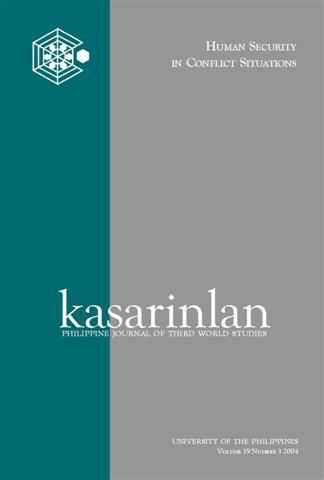Human Security: A Human Rights Approach to National Security?
Abstract
This paper discusses the evolution of a more inclusive perspective of human rights encompassing not only civil and political rights but also economic, social and cultural rights. Serving as the anchor of a rights-based perspective of national security, the convergence of human security and human rights becomes more imperative with changes taking place in the local and international contexts. The study provides an overview of the development of the human rights discourse from the conclusion of the Second World War with the signing of the Universal Declaration of Human Rights (UDHR) in 1948 to the forging of the International Covenant on Civil and Political Rights (ICCPR) and the International Covenant on Economic, Social and Cultural Rights (ICESCR). The study also presents the diverging appreciation and enforcement of both covenants citing the case of Nepal where the perpetration of human rights violations of both state and non-state actors using arms and coercive force have exacerbated the physical as well as the social and economic insecurity of its people.
Published
2007-12-16
How to Cite
SERRANO, Evelyn B.; DE MESA, Max M..
Human Security: A Human Rights Approach to National Security?.
Kasarinlan: Philippine Journal of Third World Studies, [S.l.], v. 19, n. 1, p. 37-61, dec. 2007.
ISSN 2012-080X.
Available at: <https://journals.upd.edu.ph/index.php/kasarinlan/article/view/659>. Date accessed: 28 aug. 2025.
Section
Articles
Keywords
human rights; human security; national security
By submitting a manuscript, the authors agree that the exclusive rights to reproduce and distribute the article have been given to the Third World Studies Center.



